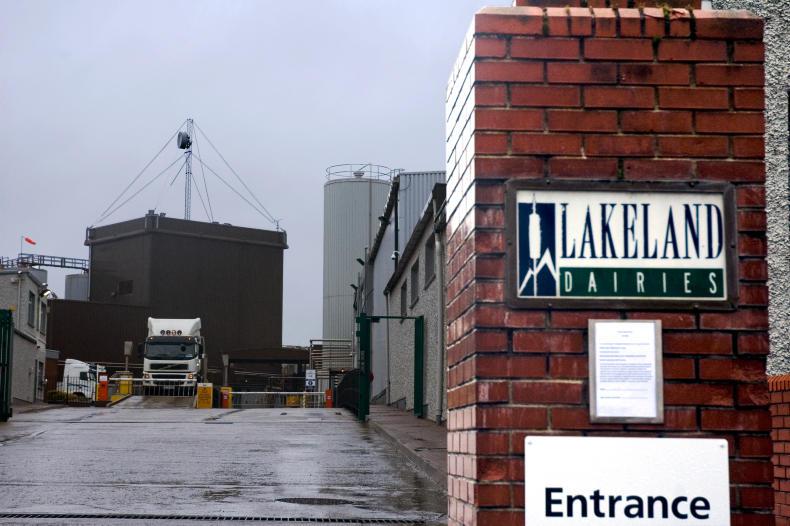Northern Ireland’s second-largest dairy processor, Lakeland Dairies, has reported that operating profits for 2016 were down more than 50% from €16.5m to €7.2m (£6.2m), on a group turnover of €601m.
According to Lakeland chief executive, Michael Hanley, the reduced profit was directly due to difficult dairy markets in 2016, and also the decision by the co-op to support milk price throughout the year to the tune of €16.5m.
The accounts also reveal details of the deal between Lakeland and Fane Valley from May 2016, when the decision was taken to purchase Armaghdown creameries outright, rather than to continue with the original plan of a joint venture between both companies.
In the end, the deal cost Lakeland €13.17m, not including a further €2.1m of restructuring costs (such as staff redundancies at the Armaghdown site in Banbridge).
In total, €6.42m was paid for fixed assets (around £5m using the prevailing exchange rate at the time), and €5.76m for the milk pool (around £4.43m).
That milk pool is estimated at aroun d 240m litres, meaning that of the total 1.1m litres processed by Lakeland, around half comes from NI.
Given recent major investment at Bailieborough in Cavan, around 80% of Lakeland’s milk is processed in the Republic of Ireland, with the remainder at Pritchitts in Newtownards. Of the estimated 600m litres that crosses the Irish border each year, around two-thirds of that is within the Lakeland pool.
With Brexit on the horizon, Lakeland has maintained its Banbridge site, and according to Michael Hanley it is ready to process milk at some point in the future, if required.
However, it is understood that the facility requires significant investment to bring it up to modern standards. In 2014, Fane Valley set out plans for a £15.6m investment, although that didn’t materialise.
The other potential solution to the border issue for Lakeland is possibly an EU scheme known as Inward Processing Relief. It allows a company to avoid any import duties where goods are brought into the EU (in this case ROI) for processing from outside the EU (in this case the UK), so long as the end product is sold back outside the EU (into the UK or another non-EU country).






 This is a subscriber-only article
This is a subscriber-only article










SHARING OPTIONS: